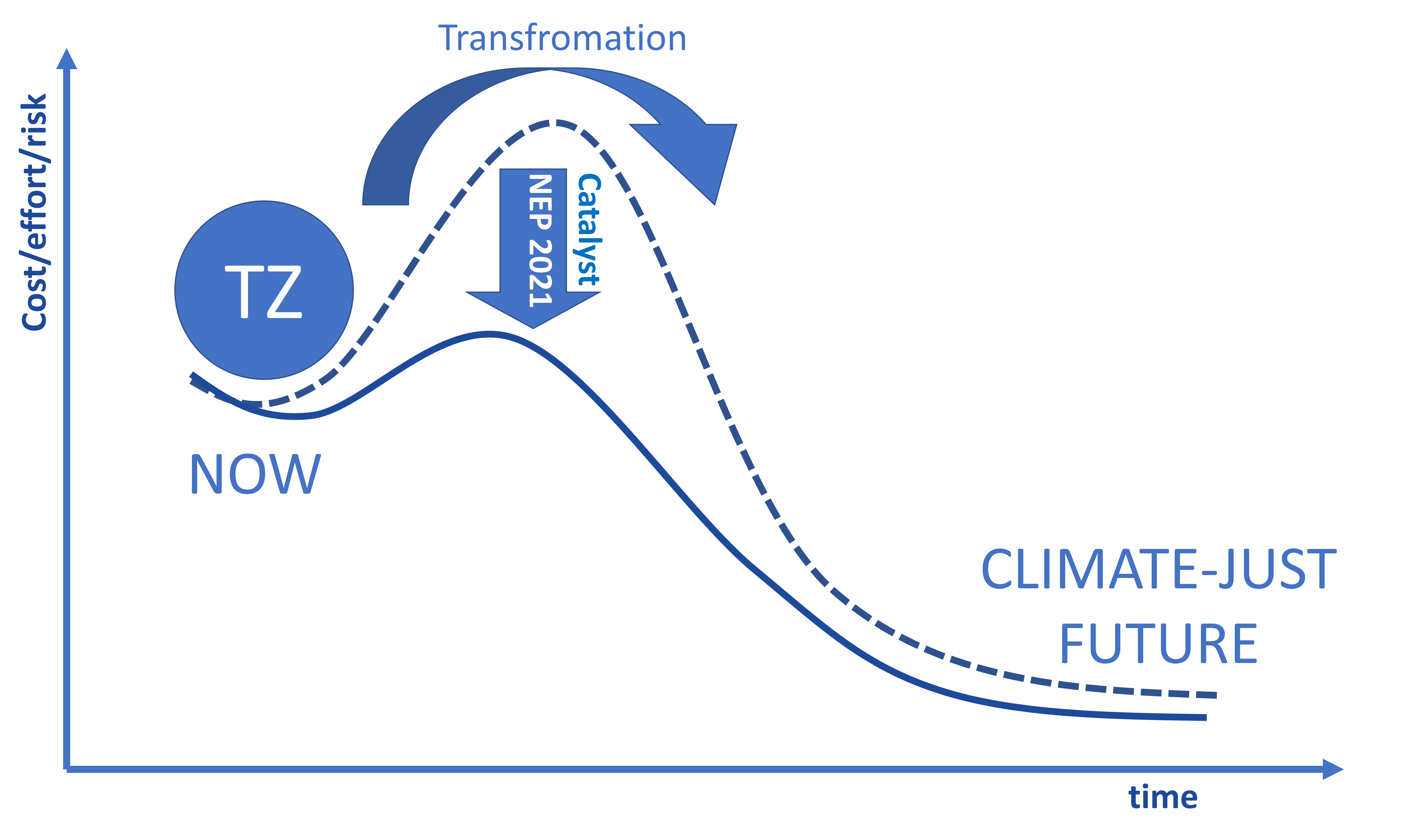
We urgently need climate action. The latest
IPCC report (AR6) alarmed that Tanzania is highly vulnerable to climate
impacts. We need national and regional collaboration, strategies and planning
to fast-track climate actions in Tanzania. Therefore smart national policies
need to guide and coordinate climate actions. The recently updated National Environmental
Policy 2021 holds the potential to catalyse mitigation and adaptation of climate change challenges.
In the following we explain and analyse the
NEP 2021. We show how to use NEP 2021 to kick-start transformation processes to
a climate-just and sustainable future.
The updated National Environmental Policy is the major guiding document that will shape and determine Tanzanian environmental policies across all sectors. It can be key for resource mobilization, policy work and implementation around climate change challenges and related environmental challenges.
The new National Environment Policy (NEP) 2021 analyses environmental challenges. Based on the identified challenges, the NEP 2021 formulates policy issues and defines objectives for the challenges. To mainstream, NEP into sectoral policies it provides policy statements as guiding principles and lists stakeholders that should be involved in the implementation and ensuring monitoring and reporting. It opens opportunities for the public and private sector in specific CSOs and Development Partners to engage and use the NEP 2021 to leverage climate action in the country.
Recommendation
for Policymakers: unlock the potential of NEP to fast-track climate action
To unfold its
full potential a climate-action centred
implementation plan and strategy should be co-designed rooted in
a participatory stakeholder process. The focus of the participatory and
inclusive stakeholder process should be on the following main building blocks:
· Sub-Objectives, Indicators and Activities
· Participatory
and inclusive assessment of resources and drafting of a resource
mobilization plan
· Monitoring & Evaluation (M&E) for stakeholder process and action plan Co-design and co-production
The process should be guided by the principles for co-design and co-production. We argue for an inclusive, collaborative and flexible process that is transparent. Vulnerable groups (women, youth, indigenous, smallholder) should be involved and represented.
In comparison to the previous policy (NEP
1997), the NEP 2021 highlighted a new environmental challenges that has yet to be recognized and
adequately mainstreamed into Tanzanian policies. Climate change, waste
management (oil and gas, chemical management, E-waste), and the safe
application of modern biotechnology (Genetically Modified Organisms: GMO) are
the new problems that have been added to the NEP 2021 framework. The NEP 2021
also cites three cross-cutting issues that must be addressed to meet the listed
challenges: good governance, resource mobilization, and gender.
Many of the identified environmental challenges, as well as the cross-cutting issues, relate to Climate Change and the mitigation and adaptation challenge Tanzania is facing.
Learn more in our policy communication:
https://cantz.or.tz/publications/16
